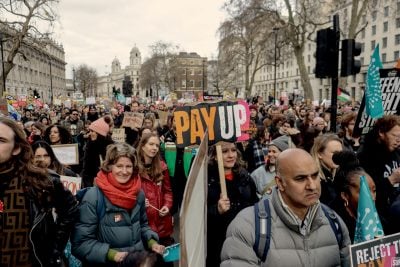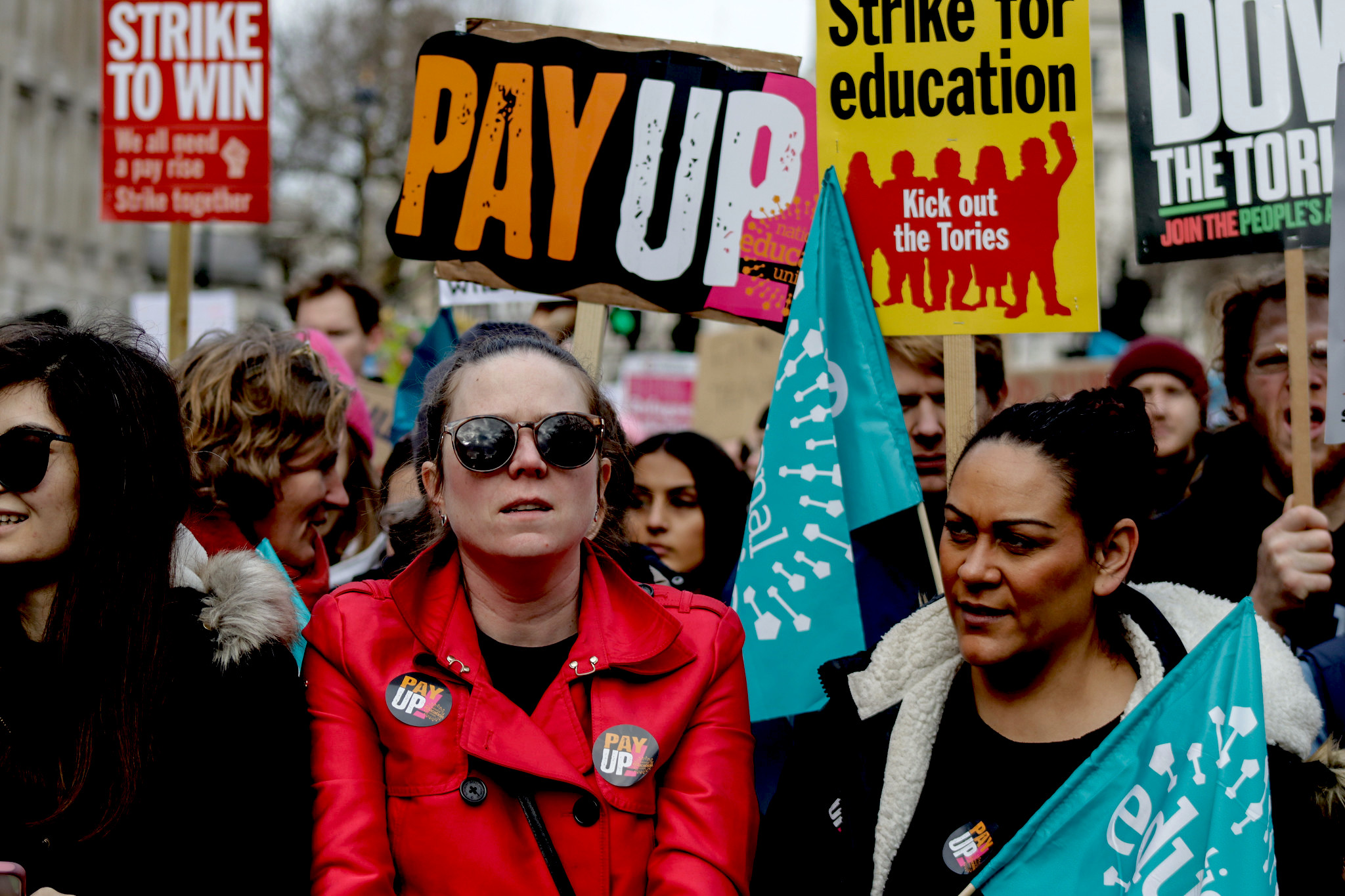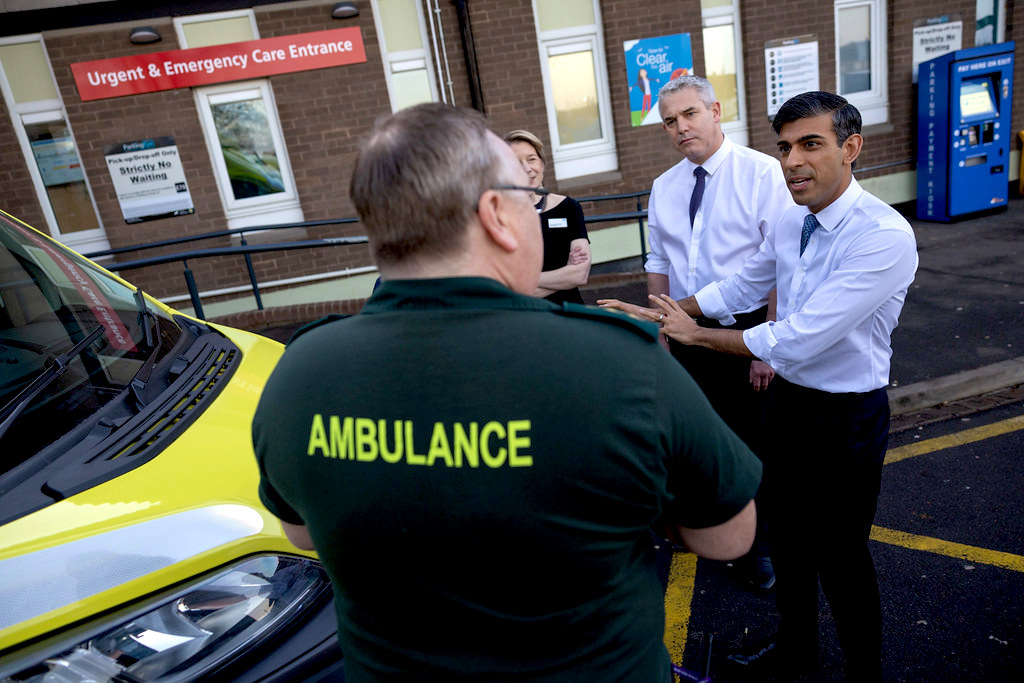UK Workers Launch Largest Strike in Over a Decade

All Global Research articles can be read in 51 languages by activating the “Translate Website” drop down menu on the top banner of our home page (Desktop version).
Visit and follow us on Instagram at @crg_globalresearch.
***
The walkout comes a day after members of Parliament approved an anti-strike bill that, if made into law, would enforce “minimum service levels” for railroads and emergency services, Julia Conley reports.
Roughly half a million British workers walked out on Wednesday in the country’s largest coordinated strike in more than a decade.
About 300,000 of the striking employees are educators, and they were joined by civil servants, railroad workers, university professors, London bus drivers, museum workers and border officials, among others, with 59 percent of Britons telling YouGov in a recent poll that they supported the walkout.
The strong support comes even as an estimated 85 percent of schools across the U.K. were closed on Wednesday. Students and parents stood on picket lines alongside teachers, whose wages have not kept up with inflation and who are struggling to teach in schools where per-pupil spending for the 2024-25 school year is now expected to be 3 percent lower than it was in 2010.
Today I was privileged to join hundreds of thousands of workers who sacrificed their pay so that others may live in a fairer society.
This is what spreading love and humanity achieves. pic.twitter.com/oa6Xbn7kqr
— Jeremy Corbyn (@jeremycorbyn) February 1, 2023
“It’s partly about pay, which has been reduced by 11% over the last 10 years,” Jon Voake, a drama teacher in South Gloucestershire, told The Guardian. “But it’s also about how our workload’s going up. We’re all working with bigger groups. Children’s education is going to suffer and enough is enough.”
In the most economically deprived parts of the country, the National Education Union said, teachers’ pay has gone down by more than 20 percent since 2010 as the rate of inflation in the U.K. stands at 10.5 percent —”the highest among the G7 group of advanced economies,” according to Al Jazeera.
“We’re struggling,” a London teacher named Mehnaz told Tribune magazine last October. “Many of us are living in cold homes because we need to save wherever we can … I know colleagues who are worried about how they’ll pay their rent or their mortgage, or how they’ll be able to afford childcare when they’re at work because their children’s schools are also having to reduce hours and close earlier than they previously did.”

National Education Union strike and rally, London, Feb. 1. (Steve Eason, Flickr, CC BY-NC 2.0)
Strike organizers said it’s entirely within the Conservative government’s power to ensure public sector employees are paid fairly .
The Trades Union Congress (TUC) says that the average public sector worker in the U.K. now has $250 less per month than they did in 2010, accounting for inflation. A graph the organization shared on social media as the workers walked out showed that teachers’ real compensation is now far lower than the range among other countries in the Organization for Economic Cooperation and Development.
A 5 percent pay raise offered to public sector workers last year is actually a 7 percent pay cut when accounting for soaring inflation, union leaders say.
The walkout comes a day after members of Parliament passed an anti-strike bill that would enforce “minimum service levels” in a railroad sector and emergency services, threatening workers with termination if they take part in a work stoppage.
The bill still needs to pass in the House of Lords before becoming law. The TUC has said it could take the government to court over the proposal, which TUC assistant general secretary Kate Bell told The Guardian is “unnecessary, unfair, and almost certainly illegal.”
Ambulance drivers and nurses are reportedly planning to stage a work stoppage in the coming days.
Conservative Prime Minister Rishi Sunak told public health workers on Monday, “I would love, nothing more would give me more pleasure than, to wave a magic wand and have all of you paid lots more” — but organizers and labor advocates on Wednesday said Sunak’s government simply needs to change its tax policies to mitigate the cost-of-living crisis.

U.K. Prime Minister Rishi Sunak on right, visiting University Hospital of North Tees, Jan. 31. (No 10 Downing, Flickr, CC BY 2.0)
“We just need a fair taxation system,” John McDonnell, a Labour MP and former shadow chancellor of the exchequer, told The Guardian. He called on the Tories to tax capital gains at the same level of income to pay for raises. “The issue at the moment is that we seem to have a government that is redistributing wealth upwards,” McDonnell said.
Mark Serwotka, general secretary of the Public and Commercial Services union, told The Guardian that the Tories have claimed it would cost £29 billion ($35 billion) to give raises to public sectors, while the actual amount is about £10 billion ($12 billion).
“And £10 billion in an economy like ours can easily be found,” said Serwotka.
Mick Lynch, secretary general of the National Union of Rail, Maritime, and Transport Workers, rallied thousands of teachers outside Downing Street in London.
“We are the working class, and we are back,” said Lynch. “We are here, we are demanding change, we refuse to be bought, and we are going to win for our people on our terms.”
“We are the working class. We are back, we are demanding change and we are going to win for our people.”
– @RMTunion Mick Lynch addresses 40,000 striking workers today#EnoughIsEnough pic.twitter.com/bvfgaZwMdS
— Enough is Enough (@eiecampaign) February 1, 2023
Julia Conley is a staff writer for Common Dreams.
This article is from Common Dreams.

